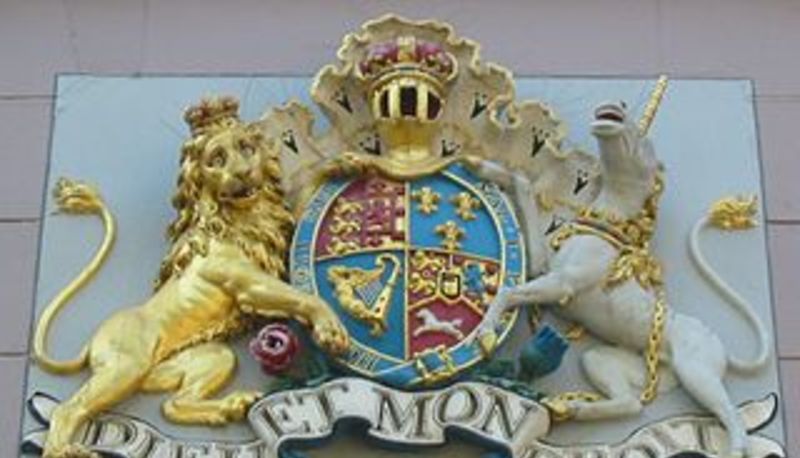Concetti Chiave
- Queen Anne was succeeded by George of Hanover in 1714, marking the start of the Hanoverian era in Britain.
- The Jacobite rebellion in Scotland in 1715 was suppressed by the English army, weakening the Tory party's support for the Stuarts.
- The Whigs, promoting the concept of a Cabinet government, rose to power with Robert Walpole as the first Prime Minister, fostering economic growth.
- Walpole's economic policies, including removing customs duties, helped England thrive during the Industrial and Agrarian Revolutions.
- The Seven Years' War (1756-1763) solidified England's dominance in trade, expanding its influence in India, Quebec, and the African trade sectors.
Indice
La successione di George di Hannover
When Queen Anne died in 1714, was succeeded by her nearest relative, George of Hanover. His kingdom was populated by 5.5 millions of people, concentrated in South East of U.K. the only large town was London. Parliament had become more powerful but less representative than the Crown because its members, not chosen by people, were nominated in the pay of great noble families. Moreover, elections were controlled by landowners. In 1715 in Scotland broke out a Jacobite rebellion (the jacobites were the supporters of James II the catholic), but it was cut by an English army. This weakened the idea of restoring the Stuart of the Tory party.
Il governo di Walpole e il commercio
The future belonged to the Whigs, according with them the ministers can meet without the king. Their meeting developed in government of Cabinet, in which all ministers are equal and in this period was created a Head of the Cabinet, the Prime Minister.  The first prime minister was R. Walpole. In period of his power he kept England out of foreign conflicts so trade could flourish well. In order to facility that Walpole removed customs duties on exports and imports of raw material. George II gave Walpole the house of Westminster, so it became forever the residence of Prime Minister.
The first prime minister was R. Walpole. In period of his power he kept England out of foreign conflicts so trade could flourish well. In order to facility that Walpole removed customs duties on exports and imports of raw material. George II gave Walpole the house of Westminster, so it became forever the residence of Prime Minister.
Walpole much favoured English economy for the advent of the Industrial and Agrarian Revolutions.He made England the main State of cloth-making, coal was mined and an iron-melting process was invented. PITT wanted England to become the economically strongest State and to enlarge his trade dominion in world. His policy led the establishment of wealth favouring the middle class and the bourgeois, with introducing of new values.
La guerra dei sette anni
In 1756 The Seven Years’ War broke out. England became loyal with Prussia against France, Russia, Austria and Spain. The aim of this war was the supremacy between England and France in control of trade in America and in the South-East of Asia. Finally England kept a big part of India and Quebec and all the trade of fish. In Africa, Dakar was taken together the monopoly of gum and slaves trade.
La società inglese del XVIII secolo
The division of categories in England is in this method: in the top there was the old aristocracy, Then there was a rich social class that comprehends the gentry and the wealthy, composed by little country aristocracy which lived in high conditions. They form the Bath Society. Down there was the middle-class and the bourgeois. Artisans and merchants were contaminated by puritan influence and they filled the gap between the upper class and poor. They worked as apprentices and receive a low wage. Below them, in deepest of society there is the mass of urban proletariat that lived in terrible conditions with illnesses such as smallpox and typhus. Life in countryside was affected by the enclosures of common lands by the gentry's landowners. So the poor peasants, denied by the lands, went in big number in towns and this mass forms the urban proletariat. In London born the coffee houses, which are place full of news and gossip and provided entertainment between people.
Domande da interrogazione
- ¿Quién sucedió a la reina Ana en 1714 y qué cambios políticos ocurrieron durante su reinado?
- ¿Qué medidas tomó R. Walpole para favorecer la economía inglesa?
- ¿Cuál fue el objetivo de la Guerra de los Siete Años y qué territorios ganó Inglaterra?
- ¿Cómo estaba estructurada la sociedad inglesa durante este período?
- ¿Qué impacto tuvieron los cercamientos de tierras comunes en la vida rural y urbana?
George de Hanover sucedió a la reina Ana en 1714. Durante su reinado, el Parlamento se volvió más poderoso pero menos representativo, y se estableció el gobierno del Gabinete, con R. Walpole como el primer Primer Ministro.
R. Walpole mantuvo a Inglaterra fuera de conflictos extranjeros, eliminó los aranceles sobre exportaciones e importaciones de materias primas, y favoreció el desarrollo de la Revolución Industrial y Agraria.
El objetivo de la Guerra de los Siete Años fue la supremacía comercial entre Inglaterra y Francia. Inglaterra ganó gran parte de India, Quebec y el comercio de pescado, además de Dakar y el monopolio del comercio de goma y esclavos en África.
La sociedad inglesa estaba dividida en la vieja aristocracia, una clase social rica que incluía a la pequeña aristocracia rural, la clase media y la burguesía, y finalmente el proletariado urbano que vivía en condiciones terribles.
Los cercamientos de tierras comunes por los terratenientes obligaron a muchos campesinos pobres a trasladarse a las ciudades, formando un gran proletariado urbano que vivía en condiciones precarias.








 Accedi a tutti gli appunti
Accedi a tutti gli appunti
 Tutor AI: studia meglio e in meno tempo
Tutor AI: studia meglio e in meno tempo